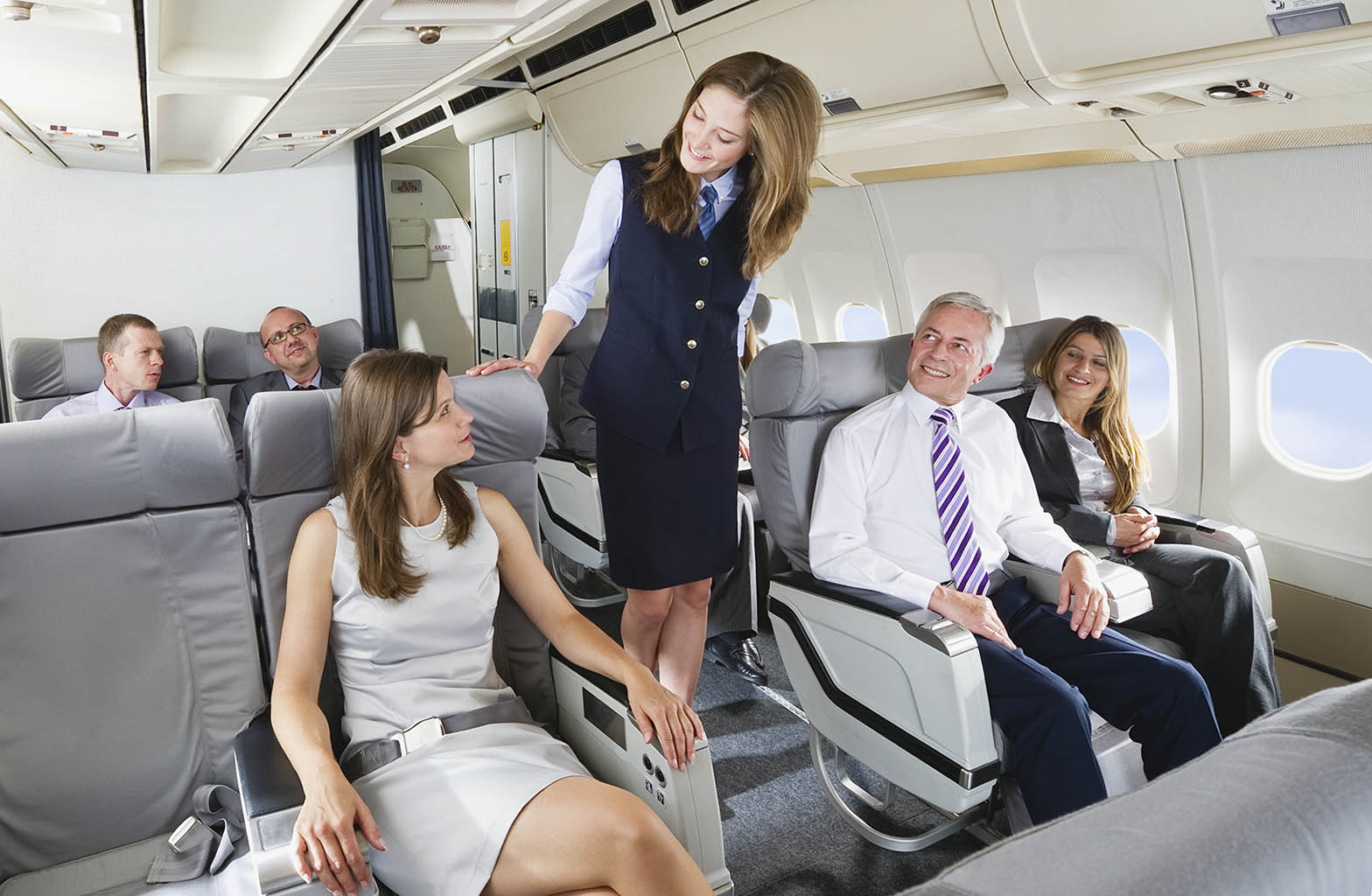Cultural Sensitivity in Aviation Understanding and Respecting Passengers
Cultural Sensitivity in Aviation: Understanding and Respecting Passengers
In an increasingly globalized world, air travel has become one of the most accessible ways for people to connect across countries and cultures. As more diverse passengers board flights each day, understanding cultural sensitivity in aviation has become an essential skill for cabin crew and airline staff. Cultural sensitivity isn’t just about avoiding misunderstandings; it’s about creating an inclusive and respectful environment for passengers from all backgrounds. This article explores the importance of cultural sensitivity in aviation and how aviation training and development equips crew members with the tools they need to engage with passengers respectfully and effectively.
Why Cultural Sensitivity Matters in Aviation
Airlines cater to passengers from every corner of the globe, each with unique customs, traditions, and expectations. When flying, passengers carry with them their cultural values, beliefs, and social norms. In this context, the role of the cabin crew goes beyond safety and comfort—it also involves respecting the diverse needs of passengers and ensuring they feel welcomed and valued.
Cultural sensitivity fosters positive relationships between cabin crew and passengers, which can directly impact the overall flight experience. On the other hand, cultural misunderstandings or insensitivity can lead to frustration, discomfort, and even conflict, which can tarnish the reputation of the airline. This is particularly critical in an industry where customer experience is paramount to brand loyalty and repeat business.
By fostering an environment of mutual respect, cultural sensitivity can improve the atmosphere on board and help ensure that passengers have an enjoyable and safe journey. For cabin crew, mastering these skills is not just a matter of good practice; it’s a reflection of their professionalism and commitment to exceptional service.
The Challenges of Cultural Sensitivity in Aviation
While the importance of cultural sensitivity is clear, the challenges of achieving it are multifaceted. Passengers may come from diverse backgrounds with vastly different social expectations and practices. For example:
- Communication Styles: Directness in communication might be perceived as rude in some cultures, while in others, it is seen as a sign of honesty and openness.
- Personal Space and Boundaries: What is considered an appropriate physical distance during interactions can vary significantly from culture to culture.
- Dietary Preferences: Different cultures have distinct dietary restrictions and preferences. For example, Muslims may require halal food, and Hindus may avoid beef.
- Religious Practices: Cabin crew must be mindful of religious observances, such as prayer times, fasting during Ramadan, or the importance of certain sacred days.
These challenges require crew members to possess cultural awareness and adaptability. Fortunately, aviation training and development programs are increasingly addressing these needs, helping crew members navigate complex cultural dynamics with confidence and care.
Key Aspects of Cultural Sensitivity for Cabin Crew
- Understanding Cultural Differences in Communication
One of the most important aspects of cultural sensitivity is understanding how different cultures communicate. While some cultures may emphasize direct and explicit communication, others may value indirect or subtle expressions. For instance, in many Western cultures, direct eye contact and firm handshakes are considered signs of confidence, while in some Asian cultures, too much direct eye contact can be seen as disrespectful.
For cabin crew, learning to navigate these differences can be the difference between a positive interaction and a miscommunication. Aviation training and development programs focus on teaching crew members the importance of adjusting their communication style to accommodate passengers’ cultural preferences, ensuring clarity without offending.
- Respecting Dietary and Religious Needs
Dietary restrictions are another crucial aspect of cultural sensitivity. Cabin crew members must be aware of the various dietary needs passengers may have, whether due to cultural or religious reasons. For example, some passengers may follow a vegetarian diet, while others may avoid certain foods due to religious practices, such as Muslims avoiding pork or Jews observing kosher dietary laws.
Aviation training and development programs often include lessons on identifying and accommodating specific dietary requests and ensuring that meals are correctly labeled and served. For cabin crew, this means being proactive in identifying potential issues and addressing them before passengers are inconvenienced. It also means being respectful and discreet when handling sensitive requests.
Similarly, understanding religious practices is essential for respecting passengers. For example, crew members should be aware of the prayer needs of Muslim passengers, particularly during fasting months like Ramadan. Additionally, cabin crew must be mindful of the significance of certain religious holidays, such as Christmas, Diwali, or Hanukkah, to avoid inadvertently offending passengers who observe these traditions.
- Adapting to Different Expectations of Service
Expectations of service can vary widely across cultures. In some cultures, passengers may expect a high level of personal attention, while in others, they may prefer more privacy and independence. Cabin crew members must be able to assess each situation and adapt their service style accordingly.
For example, in cultures that emphasize hierarchy and respect for authority, passengers may expect cabin crew to be more formal in their interactions. Conversely, in cultures where egalitarianism is emphasized, passengers may prefer a more casual, friendly demeanor from the crew. Aviation training and development programs often cover these nuances to help crew members understand when to adopt a formal or informal approach, depending on the cultural context.
- Handling Personal Space and Physical Contact
Different cultures have varying norms around personal space and physical contact. What is acceptable in one culture might be considered invasive or inappropriate in another. For instance, in many Western countries, a handshake is a common greeting, while in some Asian cultures, a bow or nod may be more appropriate.
Cabin crew members should be trained to gauge the comfort level of passengers when it comes to physical proximity and touch. For example, some passengers may be uncomfortable with close interaction or unsolicited assistance, while others may expect personal assistance in placing luggage or receiving directions. Recognizing and respecting these preferences is an essential skill for any cabin crew member.
- Demonstrating Empathy and Patience
Cultural sensitivity also involves empathy—understanding the unique challenges that passengers may face based on their cultural background. This can include anything from adjusting to a foreign environment to dealing with the stress of traveling long distances. For cabin crew, showing patience and understanding when interacting with passengers from different cultures can help ease the experience and create a more positive atmosphere.
Empathetic interactions might include acknowledging when passengers need extra time to process information or offering assistance in a way that respects their preferences. Recognizing that cultural factors can affect a passenger’s behavior or mood is crucial for navigating challenging situations calmly and effectively.
The Role of Aviation Training and Development in Cultural Sensitivity
To meet the challenges of serving passengers from diverse cultural backgrounds, aviation training and development plays a critical role in preparing cabin crew to respond with sensitivity, tact, and understanding. Comprehensive training programs typically include:
- Cultural Awareness Workshops: These workshops help cabin crew learn about different cultures, including common values, traditions, and customs. This knowledge empowers them to engage respectfully with passengers from all walks of life.
- Scenario-Based Training: Through role-playing and simulated scenarios, crew members can practice handling a variety of cultural challenges, from dietary requests to addressing communication barriers.
- Conflict Resolution Techniques: Training in conflict resolution equips cabin crew with the skills to handle misunderstandings or complaints that may arise due to cultural differences, ensuring that conflicts are de-escalated quickly and diplomatically.
- Language Skills: While cabin crew may not become fluent in every language, many airlines offer language training that can help staff understand key phrases or greetings in common languages, adding an extra layer of courtesy when interacting with international passengers.
Conclusion
Cultural sensitivity in aviation is not just about understanding and respecting the differences between passengers; it’s about creating an atmosphere of inclusivity, respect, and mutual understanding. In an industry as customer-facing as aviation, cultural sensitivity can make the difference between an average experience and an exceptional one.
For cabin crew, cultural sensitivity is a skill that must be learned, practiced, and refined over time. Thanks to aviation training and development, crew members are equipped with the knowledge and tools they need to navigate the complexities of a diverse passenger base. By embracing cultural differences, cabin crew can create a more positive, comfortable, and inclusive flying experience for everyone onboard. As the aviation industry continues to serve an increasingly diverse global market, cultural sensitivity will remain a cornerstone of exceptional customer service and passenger satisfaction.







